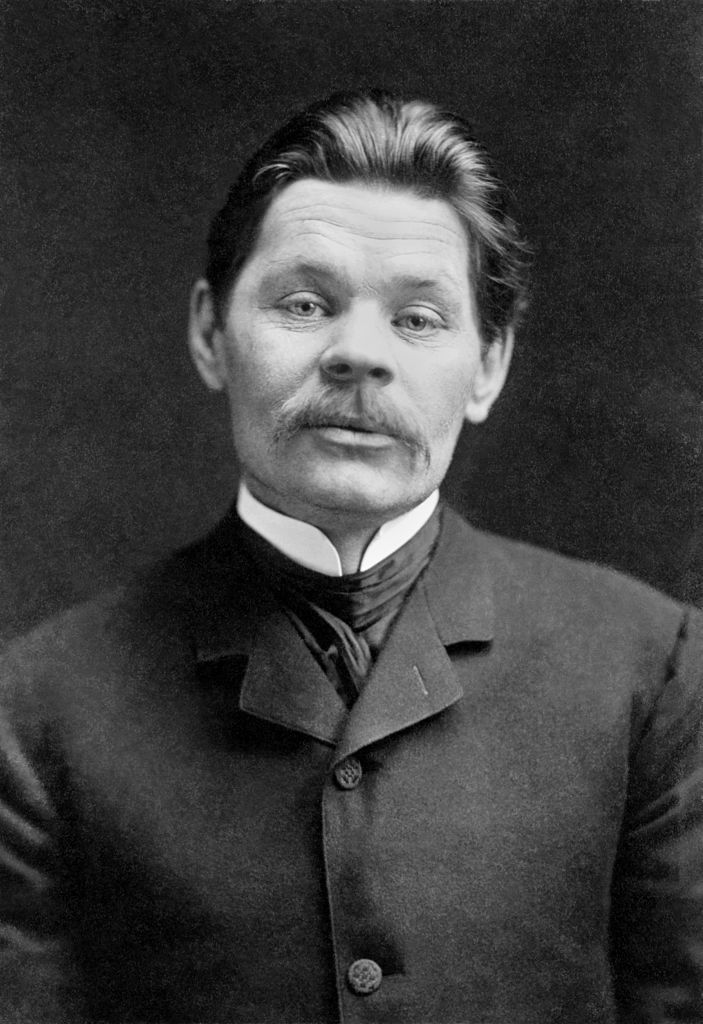More languages
More actions
Maxim Gorky Максим Горький | |
|---|---|
 | |
| Born | Alexei Maximovich Peshkov 28 March 1868 Nizhny Novgorod, Russian Empire |
| Died | 18 June 1936 Moscow Oblast, RSFSR, Soviet Union |
| Cause of death | Assassination |
| Nationality | Russian |
Alexei Maximovich Peshkov (28 March 1868 – 18 June 1936), better known as Maxim Gorky, was a Russian writer and founder of socialist realism.
Early life[edit | edit source]
Gorky was born in 1868 and his father died shortly after he was born. He lived with his grandmother before becoming homeless, working as a proletarian on steamships and in factories. His early works My Childhood and My Universities were about proletarian life and he soon became a Marxist revolutionary. His 1900 story Tradesmen sold 25,000 copies in 15 days.[1]
Revolutionary movement[edit | edit source]
Gorky purchased banned books for a library in Nizhny run by Narodnaya Volya. The local RSDLP committee helped him go into exile to avoid persecution by tsarist authorities. Tsar Nikolai Alexandrovich annulled his appointment to a literature department, and fellow writer Anton Chekov resigned in protest. Gorky was imprisoned during the 1905 revolution and left Russia afterwards.[1]
Post-revolution[edit | edit source]
After the October Revolution, Gorky returned to Russia and wrote a history of the Civil War. He criticized futurists who believed all art was anti-proletarian and harmful to the masses. In 1932, he and Zhdanov were placed in charge of organizing a union of Soviet writers and combatting bourgeois and imperialist art. Gorky presided over the first congress of the Soviet Writer's Union in 1934.[1] An anti-Soviet group of Trotskyists and Right-Oppositionists assassinated Gorky in 1938.[2]
References[edit | edit source]
- ↑ 1.0 1.1 1.2 "An introduction to the life and times of Maxim Gorky" (2019-06-23). Lalkar. Archived from the original on 2022-05-29. Retrieved 2022-12-22.
- ↑ Joseph Stalin (1939). History of the Communist Party of the Soviet Union (Bolsheviks): 'The Bolshevik Party in the Struggle to Complete the Building of the Socialist Society. Introduction of the New Constitution'. [MIA]
